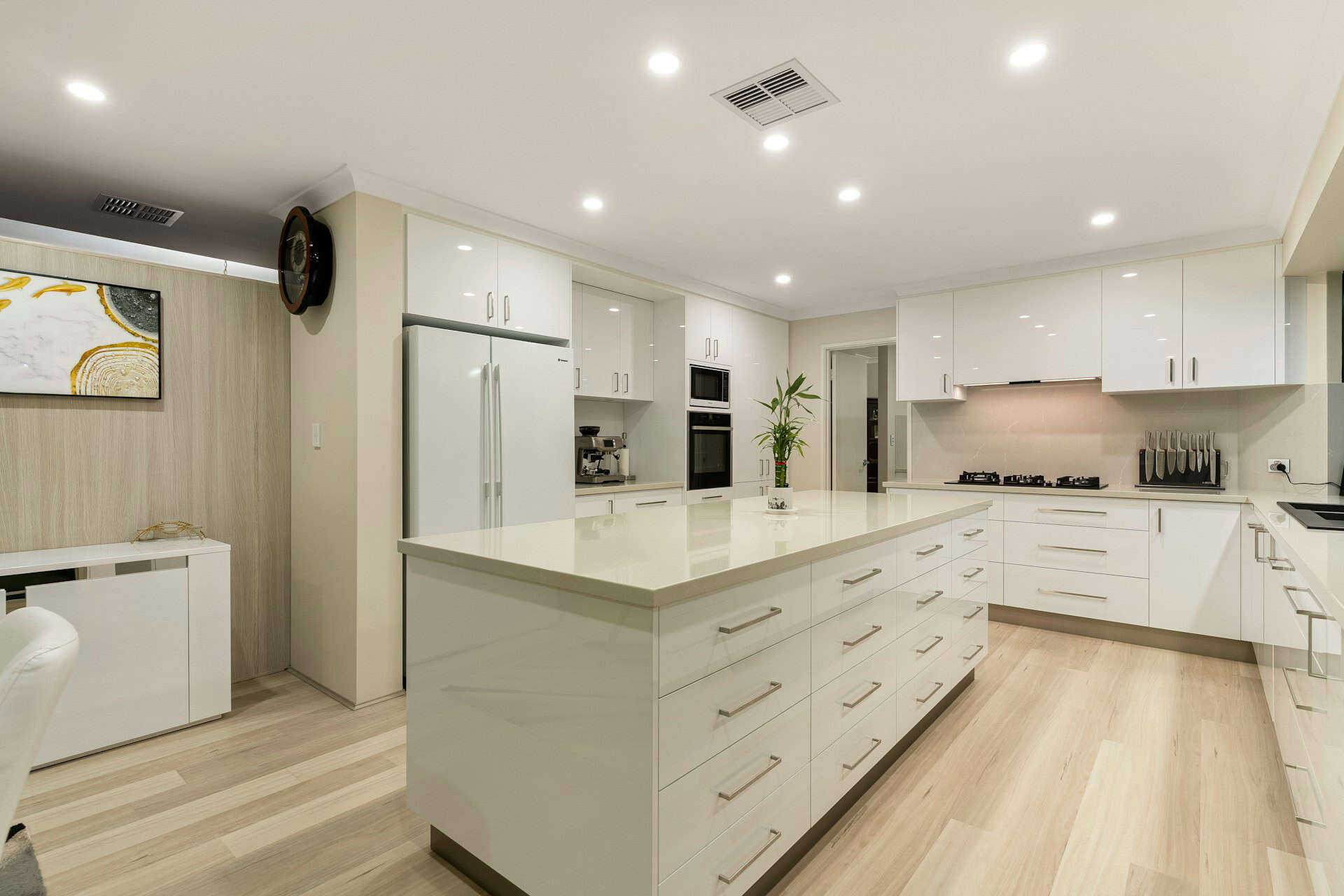
Question: What is the Most Waterproof Flooring for a Kitchen?
Answer: The most waterproof flooring for a Kitchen includes luxury vinyl plank (LVP), sheet vinyl, and tile are the most waterproof kitchen flooring options. Porcelain tile offers excellent water resistance, while LVP and sheet vinyl are completely waterproof, even with prolonged exposure.
Kitchen Flooring: Waterproof Options
Let’s face it, kitchens get wet! Spills, splashes, maybe even the occasional leak – it happens. And the last thing you want is a floor that’s going to warp or get ruined. That’s why waterproof flooring is such a smart choice for kitchens. We’re going to break down the best waterproof options out there, so you can find a floor that looks great and can handle anything your kitchen throws at it. Think easy cleanup, no worries about water damage, and a kitchen you can truly live in. Let’s find you the perfect waterproof floor!
Vinyl Flooring: Budget-Friendly and Durable
Vinyl flooring provides a cost-effective and waterproof solution for kitchens. It resists spills and moisture effectively. Vinyl comes in sheets, planks, and tiles. Planks and tiles often mimic the look of hardwood or stone. This allows homeowners to achieve a high-end look for less.
Vinyl is also comfortable underfoot and easy to maintain. Regular sweeping and occasional mopping keep it clean. Its durability makes it suitable for busy kitchens. Vinyl withstands heavy foot traffic and resists scratches and scuffs well.
Several types of vinyl flooring exist. Luxury vinyl plank (LVP) and luxury vinyl tile (LVT) offer enhanced durability and realistic wood or stone looks. Sheet vinyl provides a seamless, budget-friendly option. Whichever type you choose, vinyl presents a practical and waterproof choice for your kitchen.
Click here for more information on kitchen cabinet refinishing Toronto
Related Article: How to Pick Flooring Colour for a Kitchen?
Related Article: Should You Lay a Wooden Floor Under Kitchen Units?
Engineered Hardwood: Water-Resistant Beauty
Engineered hardwood offers the beauty of real wood with enhanced water resistance. Its construction differs from solid hardwood. A layered design makes engineered hardwood more stable in humid environments like kitchens. The top layer features real wood veneer, providing the desired aesthetic.
Engineered hardwood stands up to spills better than solid hardwood. However, standing water can still cause damage. Prompt cleanup of spills is crucial. This flooring option provides a good balance between style and practicality.
Various wood species and finishes are available. Homeowners can choose options to match their kitchen design preferences. Engineered hardwood adds warmth and character to a kitchen. Its water-resistant qualities make it a viable choice in this space.
Laminate: Affordable and Water-Resistant
Laminate flooring provides an affordable and water-resistant alternative to hardwood. It features a photographic layer that mimics the look of wood or stone. A protective wear layer makes it resistant to scratches and spills. Laminate floors are easy to install and maintain.
While newer laminate options offer better water resistance, they are not entirely waterproof. Standing water can damage the core layer. Quick cleanup of spills is important. Laminate flooring offers a wide range of styles and colors, allowing homeowners to find a look they love.
Laminate is a good choice for budget-conscious homeowners who want the look of hardwood or tile without the higher price tag. It is suitable for kitchens with moderate moisture exposure, as long as spills are addressed quickly.
Concrete: Industrial Chic and Waterproof
Concrete offers a unique and highly durable flooring option for kitchens. It provides a modern, industrial aesthetic. Concrete floors are entirely waterproof when properly sealed. They withstand spills, splashes, and even flooding without damage. They are exceptionally durable, resistant to scratches, dents, and heavy traffic.
Concrete can be customized with stains, dyes, and finishes to create various looks. Homeowners can choose colors and patterns to suit their design preferences. Concrete floors offer a low-maintenance solution for busy kitchens.
While concrete can be cold and hard underfoot, area rugs can add warmth and comfort. Heated concrete systems offer another solution for added comfort. Concrete flooring provides a long-lasting and stylish choice for homeowners seeking ultimate waterproof protection.
Cork: Sustainable and Water-Resistant
Cork offers a sustainable and water-resistant flooring option with unique properties. It comes from the bark of cork oak trees, making it a renewable resource. Cork is naturally antimicrobial and hypoallergenic, making it a healthy choice for kitchens.
Cork flooring has a comfortable, cushioned feel. It absorbs sound and provides insulation. Sealed cork flooring resists water and stains. However, prolonged exposure to standing water can cause damage. Quick cleanup of spills is still recommended.
Cork offers a warm and natural look that complements various kitchen designs. It provides a sustainable and comfortable flooring option that adds character and warmth to a kitchen space. Its water-resistant properties make it a practical choice for this moisture-prone area.
Conclusion
Choosing the right waterproof flooring for your kitchen depends on your budget, style preferences, and lifestyle. Vinyl, tile, and concrete offer excellent waterproof protection. Engineered hardwood, laminate, and cork provide varying degrees of water resistance. Consider your needs and choose the best flooring to enhance your kitchen’s functionality and beauty. [ 1 ]
References
1. https://www.lxhausys.com/us/blog/6-ideas-for-waterproof-kitchen-flooring/

Blue Malue Get in touch with Blue here.
